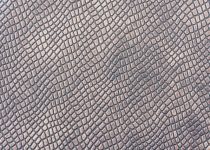Clear Your Skin, Say Goodbye To Acne: A Comprehensive Guide To Treatment
Acne is a common skin condition that affects people of all ages. It can be frustrating and embarrassing, but it is treatable. There are a variety of over-the-counter and prescription treatments available to help clear acne.
The first step in treating acne is to identify the type of acne you have. There are two main types: inflammatory acne and non-inflammatory acne. Inflammatory acne is characterized by red, swollen bumps that may contain pus. Non-inflammatory acne is characterized by blackheads and whiteheads.
Once you know the type of acne you have, you can start to choose a treatment. There are a variety of over-the-counter treatments available for mild acne, including benzoyl peroxide, salicylic acid, and tea tree oil. These treatments work by killing bacteria and unclogging pores.
For more severe acne, prescription treatments may be necessary. These treatments may include topical antibiotics, oral antibiotics, and retinoids. Topical antibiotics work by killing bacteria, while oral antibiotics work by reducing inflammation. Retinoids help to unclog pores and prevent new breakouts.
In addition to topical and oral medications, there are a number of lifestyle changes that can help to improve acne. These changes include:
* Washing your face twice a day with a gentle cleanser
* Avoiding harsh scrubs and soaps
* Moisturizing your skin regularly
* Eating a healthy diet
* Getting enough sleep
* Managing stress
If you have acne, it is important to see a dermatologist to get the best treatment for your specific condition. With the right treatment, you can clear your skin and prevent future breakouts.
**Here are some additional tips for treating acne:**
* Be patient. It may take several weeks or months to see results from your acne treatment.
* Don't give up. If one treatment doesn't work, try another one.
* Be consistent with your treatment. Use your medications and follow your skin care routine every day.
* Avoid touching your face. This can spread bacteria and worsen your acne.
* Get professional help if your acne is severe or doesn't respond to home treatment.


